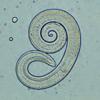India is one of the world's largest producers of farmed shrimp, with the United States being one of its main export markets (246,000 tons in 2023). There are 650 shrimp processing plants in India.
Best Aquaculture Practices (BAP) Certification is an international certification system
that covers aspects as diverse as animal welfare, environmental impact, and food safety.
Of the 650 Indian establishments, 130 are BAP certified.
The Indian aquaculture sector faces several food safety issues: bacterial contamination (Salmonella, Vibrio), and chemical contamination (Nitrofurans, Chloramphenicol). The US FDA has issued several import alerts for aquaculture products.
Import Alert 16-35 (Salmonella & Filth), Import Alert 16-129 (Nitrofurans), Import Alert 16-127 (Chloramphenicol).
Alert 16-35 includes 193 Indian plants, 104 of which are BAP-certified.
Import Alert 16-35 (salmonella and filth), Import Alert 16-129 (nitrofurans), Import Alert 16-127 (chloramphenicol). Alert 16-35 includes 193 Indian plants, 104 of which are BAP-certified. In the last five years, 161 rejections of Indian shrimp imports have been recorded, 18 in the EU, 29 in Japan and 114 in the USA.
107 correspond to shipments from BAP establishments, 36 consignments correspond to uncertified plants and 18 in which the issuing establishment cannot be identified since the European RASFF does not identify infringing establishments.
Based on these data, it does not appear that BAP certification provides an additional guarantee regarding the food safety of certified products.
For more information, you can see de attached file











